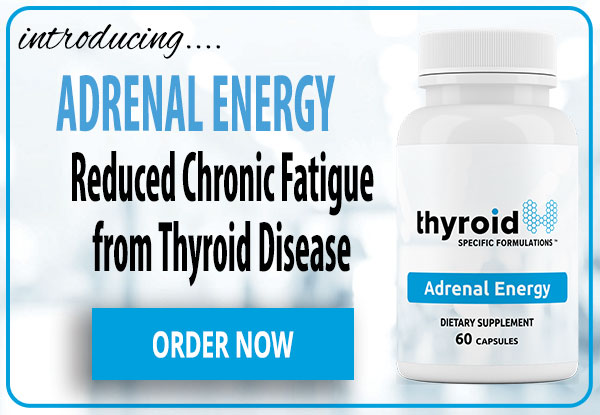Do you ever feel like you might be struggling with your thyroid health?
In this blog, we’ll explore who should suspect issues with their thyroid, the top symptoms to keep an eye out for, how to get tested, and what steps you can take today.




Do you ever feel like you might be struggling with your thyroid health?
In this blog, we’ll explore who should suspect issues with their thyroid, the top symptoms to keep an eye out for, how to get tested, and what steps you can take today.
Recommended Product: All your Daily Thyroid Nutrients in a one stop bundle. Doctor Formulated, Thyroid Focused nutraceuticals that not only help boost your thyroid output but also assists in maintaining a thriving thyroid. This bundle contains ALL your essential micronutrients, healthy omega fatty acids, Vitamin D, Calcium and Magnesium. Specifically designed for those with Hashimoto’s, Hypothyroid and Hyperthyroid Disease. Click Here
The first, and biggest consideration is gender. Women experience way more issues with thyroid disease when compared to men – it’s not fair, but it’s true. That said, men still get thyroid disease, but if you’re a female, your odds are higher.
The second biggest consideration is age. The older you get, the more likely it becomes that you may struggle with your thyroid. Research has shown that the odds climb higher and higher almost on a decade-by-decade basis. This is true for both genders.
Next, we need to think about certain stages in life. Along with age, we also know when thyroid disease becomes even more common:
Specifically, we see that with the onset of perimenopause, the risks of autoimmune thyroid disease go up almost five times. Typically that will be around the mid-40s for women.
Key Insight: Any time there is a big shift in your body’s hormonal balance, as is the case with menopause and perimenopause, you may find yourself at risk for thyroid disease.
The other thing we need to think about is family history. If someone in your family has had thyroid disease, your odds become instantly higher. It’s a bit of a curious thing because while it is likely it is not specific to any particular type.
For example, if someone in your family had Graves’ disease or thyroid cancer, you have a greater chance of having thyroid disease – but not specifically having Graves’ disease or thyroid cancer, specifically. The most common type is autoimmune hypothyroidism.
Now that we’ve talked a bit about those who may suspect thyroid issues, let’s talk a bit more about symptoms, Broadly speaking, we want to organize symptoms into one of three distinct camps:
Let’s dive into each…
Thyroid symptoms can often feel unexplained. Typically, this means you may have struggled with them before, but now they are back and appearing in greater intensity.
On the other hand, they could also be brand new. Some of the most common symptoms in this category include:
These are things that you may have had before, but if a certain number of them have emerged or changed together, that is suspicious for thyroid disease.
Key Insight: You do not need to be experiencing all of these symptoms. If you only have a couple, which are present to a high degree, that is enough evidence.
The most predictive symptoms are the ones that may be less common but point more toward the likelihood of thyroid disease. These include:
Notice that most of these symptoms suggest some kind of change (think: a more hoarse voice). These are emerging symptoms that are more predictive when they are emergent.
Key Insight: As much as they might be predictive, not having these symptoms does not mean you are free from thyroid issues. We do not consider them ‘rule-out’ symptoms.
Some symptoms are often overlooked but can still be relevant to thyroid issues:
These are not among the most classic thyroid symptoms. But, they are strongly associated and give us a thought of food for thought and cause for concern.
Based on what we know about who should suspect thyroid issues, and the most common and relevant symptoms, what do you do next? In short, you check!
The first thing to consider is an examination of your thyroid. Understanding the physical structure of it to inform how it’s working and what you should do next.
There are three ways this can be done. The first is by performing a self-examination.
A self-examination is the simplest method. If you do these regularly, they are very useful – but, the first time you do them you’re not going to know what to expect. And that’s okay!
Over time, you can learn what is “normal” for your neck and how it should feel, so you can spot any irregularities and then seek proper care.
You can perform a self-examination by checking for any unusual lumps or sore spots on your neck. I’d consider performing what we call a “neck check” once a month.
Beyond that, there are also doctor’s exams and ultrasounds. These are great to build on what you’re seeing after a self-examination or if things change over time.
Key Insight: In many cases, the first sign of thyroid disease can be changes to the structure of your thyroid. That is why examinations can play such a key, helpful role in your health.
A complete blood panel, including tests for the following markers, can provide valuable insights:
There are so many things you could be testing. But, I think it truly helps to focus on this core set of markers to give you a sense of where you should focus your efforts.
While some other tests exist, such as rT3, TIA, and T7, they are not as commonly used and may not provide as much diagnostic information.
Key Insight: More tests won’t help without the right partner by your side. You should be mindful of testing and then building an understanding of your markers relative to your health.
The earliest sign of thyroid disease is that something might hurt. Maybe you discover a lump or a sore spot on your neck. In many cases, you may notice skin changes over your thyroid, which can lead to a rash that almost perfectly outlines the thyroid.
Additionally, we may see nodules show up. They are a common sign of there being some kind of thyroid disease, and they are also a problem on their own (they can often present a risk for thyroid cancer down the road).
In terms of blood tests, the most common early finding would be positive thyroid antibodies. This includes:
Of the two of those, the first is the most common to show up first. This typically indicates that there is some kind of autoimmunity present.
When it is high, it is always an issue. If it is totally low, it is rarely an issue – but, when it is borderline it depends on a whole host of factors.
There are also those with thyroid disease who do not have measurable thyroid antibodies. In those cases, we find this out by the findings on an ultrasound.
Key Insight: Even if your thyroid has not slowed or become overactive, the autoimmune side of it can cause symptoms all on its own (it doesn’t need other changes). If you are not feeling well, check your antibodies. If they are positive, they are important – and they can be helped.
If you are concerned about the potential thyroid problems in women or anyone else, what should you do if you have a sneaking suspicion you might be suffering? Here are two of the top things to consider…
If your tests indicate thyroid problems, it’s ideal to consult with an endocrinologist who is trained in natural medicine. They can help you understand your condition and guide you on the appropriate steps to take moving forward.
If you are someone struggling with thyroid disease, it is so important to know that you do not need to go on medication straight away. In nearly all cases, medications are not likely to help and may even result in increased risk.
The conventional world is a little slower to medicate, but if they do they are more apt to use T4 like Synthroid. In the natural world, they are very quick to medicate and are quick to use natural thyroid (or T3-only).
What’s the issue here? While all of these things certainly have their place, if you do not need thyroid medication it is not only unlikely to help, it is likely to cause harm (like increased cancer risk, mortality risk, shutting off your thyroid, etc.).
Based on everything we discussed today, I hope I gave you some insight into recognizing the signs of thyroid issues, getting to the heart of them, and knowing the first steps to take to start treating them the right way.
There are so many who can reverse these symptoms with diet and nutraceuticals. If you are someone who is in the early stages of thyroid disease, please consider the Thyroid Reset Diet for a comprehensive plan.
You can pair that with Thyroid-Specific Formulations, with a handy quiz to help you figure out the best nutriceuticals you can take for your health. I hope it helps!
In nearly all cases, these sorts of strategies can take care of everything that might be causing you to struggle. I hope they give you a look toward feeling better in a meaningful way.

P.S. Whenever you are ready, here is how I can help you now:
Dr. Alan Glen Christianson (Dr. C) is a Naturopathic Endocrinologist and the author of The NY Times bestselling Hormone Healing Cookbook, The Metabolism Reset Diet, and The Thyroid Reset Diet.
Dr. C’s gift for figuring out what works has helped hundreds of thousands reverse thyroid disease, heal their adrenals, and lose weight naturally. Learn more about the surprising story that started his quest.